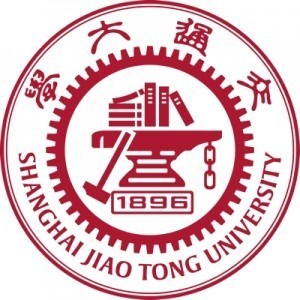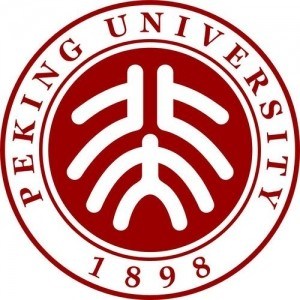Photos of university / #shanghai_jiao_tong_university
Electrical and Computer Engineering at Shanghai Jiao Tong University is a comprehensive and cutting-edge program designed to prepare students for the rapidly evolving fields of electronics, electrical systems, and computer technologies. The program offers a rigorous curriculum that combines fundamental principles of electrical engineering with advanced topics in computer engineering, allowing students to develop a deep understanding of both hardware and software systems. Students will learn about circuit design, signal processing, embedded systems, power electronics, communication networks, control systems, artificial intelligence, machine learning, and cybersecurity, among other areas. The program emphasizes practical skills through laboratory work, project-based learning, and collaboration with industry partners, ensuring graduates are well-equipped to meet real-world challenges. Emphasizing innovation and research, the program encourages students to participate in scientific projects and competitions, fostering a spirit of inquiry and creativity. Shanghai Jiao Tong University’s state-of-the-art facilities and strong connections with corporations and research institutions provide students with valuable internship and employment opportunities. Graduates of this program will be prepared for careers in design, research and development, manufacturing, and management within the broad fields of electrical and computer engineering. They will also be capable of pursuing postgraduate studies and engaging in cutting-edge technological innovations. This program aims to cultivate professionals who are not only skilled engineers but also pioneering researchers and visionary leaders committed to advancing global technology and addressing critical societal needs through innovative solutions.
Subjects required by all programs
- Applied Calculus II or Honors Mathematics II
- Applied Calculus III or Honors Mathematics III
- Applied Calculus IV or Honors Mathematics IV
- Discrete Mathematics
- Introduction to Engineering
- Introduction to Computer and Programming
- Chemistry & Chemistry Lab
- Physics I & II or Honors Physics I & II
- Physics Lab I & II
Program Subject
- Introduction to Circuits
- Introduction to Signals and Systems
- Programming &Introductory Data Structures
- Probabilistic Methods in Engineering
- Electromagnetics I
- Introduction to Logic Design
- Electronic Circuits
- Introduction to Semiconductor Devices
- Introduction to Computer Organization
- Technical Communication
- Capstone Design
- Advanced Technical Communication
Core Electives (4 credits)
A minimum of 4 credits from one of the following categories:
- Circuits
- Computers
- Electromagnetics/Optics
- Signals and systems
Requirements
- TOEFL (iBT): 84 or above with section scores of at least 21 in reading, listening, speaking, and writing; IELTS: 6 or above.
- Two recommendation letters are required: one from your high school counselor and one from a teacher.
- We pay special attention to math, physics, chemistry and other related subjects. Please arrange to have official copies of your transcripts in English sent to us by all high schools you attended.
- Transcripts from high school(s)/college (s) you attended
- Original Bank Statement of Finances
- Original TOEFL / IELTS , SAT / ACT, and AP/IB scores
- A Copy of your passport ID page
- One passport‐size photo (3.5cm x 4.5cm)
Scholarships
- JI scholarships
- Chinese Government
- Shanghai Government Scholarships
- Endowed scholarships
- Company-sponsored Scholarships
- Teaching Assistantships
The Bachelor's degree program in Electrical and Computer Engineering at Shanghai Jiao Tong University is designed to prepare students for advanced careers in the fields of electronics, electrical systems, computer hardware, and software engineering. The program emphasizes a comprehensive understanding of fundamental principles in electrical engineering, integrated with cutting-edge developments in computer technology. It aims to cultivate innovative problem-solvers who are capable of addressing complex technological challenges in various industries, including telecommunications, automation, renewable energy, and information technology.
Students enrolled in this program typically undertake coursework that covers core topics such as circuit theory, digital and analog electronics, signals and systems, microprocessors, embedded systems, and software programming. The curriculum also includes courses in control systems, power electronics, electromagnetic fields, and communication systems. Additionally, the program integrates practical training through laboratory work, projects, and internships to ensure that students gain hands-on experience in designing, analyzing, and implementing engineering solutions.
The faculty members involved in the program are renowned experts in their respective fields, contributing to innovative research and technological advancements. The program collaborates with various national and international industries and research institutions, offering students opportunities for internships, joint research projects, and exchange programs. This exposure aims to enhance students’ practical skills and global perspectives.
Graduates from the program are well-equipped to pursue careers in various sectors, including research and development, technological innovation, manufacturing, and consultancy firms. They are also prepared for postgraduate studies in electrical and computer engineering or related disciplines. The program's emphasis on interdisciplinary knowledge, fostering both theoretical understanding and practical application, makes it highly relevant in today’s rapidly evolving technological landscape.
The university supports students with modern facilities such as advanced laboratories, innovation centers, and computer clusters, providing an optimal environment for learning and research. The international orientation of the program is reflected through English-taught courses, international faculty, and collaborations, attracting students from around the world. Students are encouraged to participate in competitions, conferences, and technical workshops, which further enhance their professional development.
Overall, the Electrical and Computer Engineering program at Shanghai Jiao Tong University aims to produce versatile, innovative engineers with a robust foundation in electrical and computer engineering disciplines, prepared to contribute meaningfully to technological progress and societal development.



